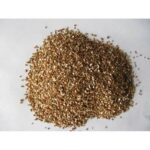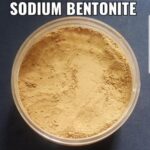Micronized Silica (Grade 800 M) For Concrete & Concrete Block Application
We are the stalwarts in the domain of manufacturing, supplying, wholesaling, and exporting Micronized Silica (Grade 800 M) For Concrete & Concrete Block Application. These flavor grade chemicals are processed using pure and accurate ingredients that are procured from reliable and trusted vendors of the market. Our range is available in the market at leading prices in packs of different quantities.
Micronized Silica (Grade 800 M), can find various applications in the concrete industry due to its unique properties.
Here are some potential uses and applications of Micronized Silica (Grade 800 M) in concrete:
Concrete Reinforcement:
Micronized Silica (Grade 800 M) can be used as a reinforcing agent in concrete to improve its strength and durability. It acts as a filler and helps reduce the permeability of concrete, making it more resistant to water penetration and chemical attacks.
High-Performance Concrete:
Incorporating Micronized Silica (Grade 800 M) in the production of high-performance concrete can enhance its mechanical properties, such as compressive strength, flexural strength, and abrasion resistance.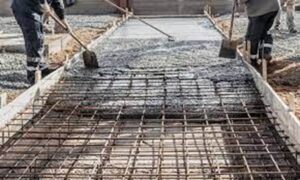
Reduced Shrinkage:
Micronized Silica (Grade 800 M) can help mitigate the shrinkage of concrete during the curing process. This is particularly beneficial in preventing cracks and improving the long-term stability of the concrete structure.
Workability Improvement:
Adding Micronized Silica (Grade 800 M) to concrete mixtures can enhance workability, making it easier to place and finish. This is crucial in construction applications where ease of handling and placement is important.
Corrosion Resistance:
The use of Micronized Silica (Grade 800 M) in concrete can improve its resistance to corrosion, especially in environments where the concrete is exposed to harsh chemicals, salts, or other corrosive substances.
Abrasion Resistance:
Micronized Silica (Grade 800 M) can contribute to increased abrasion resistance in concrete, making it suitable for applications such as industrial floors, pavements, and other surfaces exposed to heavy traffic and wear.
Reduced Permeability:
The addition of Micronized Silica (Grade 800 M) can reduce the permeability of concrete, which is beneficial in structures where protection against water ingress is crucial, such as in water-retaining structures or marine environments.
Cement Replacement:
In some cases, Micronized Silica (Grade 800 M) can be used as a partial replacement for cement in concrete mixes. This can lead to environmental benefits by reducing the overall carbon footprint associated with cement production.
Improved Thermal Properties:
The incorporation of Micronized Silica (Grade 800 M) can contribute to better thermal properties in concrete, making it more suitable for applications where insulation or temperature resistance is important.
Enhanced Ductility:
Micronized Silica (Grade 800 M) can improve the ductility of concrete, reducing its susceptibility to cracking under various stress conditions.
It’s important to note that the specific benefits and dosage of Micronized Silica (Grade 800 M) in concrete can vary based on the formulation, mix design, and intended application. Therefore, it’s recommended to consult with concrete experts or conduct thorough testing to optimize the use of micronized silica in a particular concrete mix.
Micronized Silica (Grade 800 M), can be applied in both conventional concrete and concrete block production.
Here are specific uses and applications for Micronized Silica (Grade 800 M) in these contexts:
Concrete Applications:
Enhanced Strength and Durability:
Adding Micronized Silica (Grade 800 M) to concrete mixes can improve compressive strength and durability, making it suitable for applications where high-performance concrete is required.
Reduced Shrinkage and Cracking:
Micronized Silica (Grade 800 M) can help mitigate shrinkage and reduce the likelihood of cracking during the curing process, particularly important in large structures and those exposed to varying environmental conditions.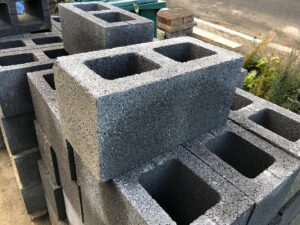
Improved Workability:
In concrete construction, Micronized Silica (Grade 800 M) can enhance workability, making the concrete easier to place and finish. This is especially valuable in applications where precise molding or shaping is necessary.
Corrosion Resistance:
Incorporating Micronized Silica (Grade 800 M) into concrete can enhance its resistance to corrosion, a critical factor in structures exposed to aggressive environments or chemicals.
Abrasion Resistance:
Micronized Silica (Grade 800 M) contributes to increased abrasion resistance, making the concrete suitable for surfaces subjected to heavy traffic, such as industrial floors, pavements, and driveways.
Reduced Permeability:
The use of Micronized Silica (Grade 800 M) can reduce the permeability of concrete, making it suitable for structures where water ingress needs to be minimized, such as in water-retaining structures.
Cement Replacement:
As a partial replacement for cement, Micronized Silica (Grade 800 M) can reduce the carbon footprint associated with concrete production while maintaining or improving overall performance.
Concrete Block Applications:
Strength Improvement:
Adding Micronized Silica (Grade 800 M) to concrete block mixtures can enhance their compressive strength, providing improved structural integrity.
Reduced Weight:
Utilizing Micronized Silica (Grade 800 M) in concrete block production can result in blocks with reduced weight without compromising strength, making handling and transportation more convenient.
Thermal Insulation:
Micronized Silica (Grade 800 M) can contribute to improved thermal insulation properties in concrete blocks, making them suitable for applications where energy efficiency is important.
Dimensional Stability:
The addition of Micronized Silica (Grade 800 M) can enhance the dimensional stability of concrete blocks, reducing the risk of warping or distortion over time.
Improved Surface Finish:
Micronized Silica (Grade 800 M) aids in achieving a smoother and more consistent surface finish for concrete blocks, enhancing their aesthetic appeal.
Cost-Effective Formulations:
By optimizing the use of Micronized Silica (Grade 800 M) in concrete block formulations, manufacturers can achieve cost-effective solutions without compromising performance.
Environmental Benefits:
Using Micronized Silica (Grade 800 M) in concrete block production can contribute to sustainable practices by reducing the reliance on traditional materials and minimizing the environmental impact.
It’s essential to conduct thorough testing and optimization for specific formulations to achieve the desired properties in both concrete and concrete block applications. Additionally, consulting with experts in concrete technology can provide valuable insights for successful implementation.
Micronized Silica (Grade – 800 M), is a type of finely ground silica powder with particle sizes in the micron range. It has various uses and applications in the petrochemical industry due to its unique properties.
Here are some common applications:
Catalyst Support: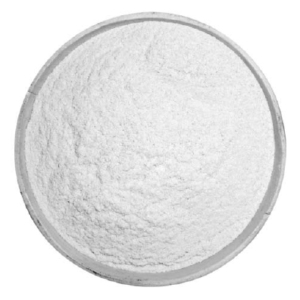
Micronized silica can be used as a catalyst support in petrochemical processes. The high surface area and porosity of micronized silica provide an excellent substrate for catalytic reactions. It can enhance the activity and stability of catalysts in various chemical reactions, such as those used in refining processes.
Polymer Reinforcement:
Micronized Silica is often used as a reinforcing filler in the production of polymer materials, such as elastomers and thermoplastics. It improves the mechanical properties, including tensile strength, modulus, and abrasion resistance of the polymers, making them suitable for applications in the petrochemical industry.
Viscosity Control:
In the formulation of lubricants and drilling fluids in the petrochemical industry, micronized silica can be used to control viscosity. It acts as a thickening agent, preventing settling and improving the stability of these formulations under various conditions.
Flow Improver in Oil and Gas Pipelines:
Micronized silica can be added to oil and gas pipelines to act as a flow improver. It helps reduce friction between the fluid and the pipeline walls, thereby improving the flow of crude oil or natural gas. This can enhance the efficiency of transportation in the petrochemical sector.
Anti-Caking Agent:
In the handling and storage of powdered materials in the petrochemical industry, micronized silica can be used as an anti-caking agent. It helps prevent the formation of lumps or clumps, ensuring that the material remains free-flowing and easy to handle.
Absorbent for Liquids:
The high surface area of micronized silica makes it suitable as an absorbent for liquids. It can be used to absorb and remove impurities, moisture, or unwanted substances from various petrochemical processes.
Coating and Sealant Formulations:
Micronized silica is used in the formulation of coatings and sealants, providing improved adhesion, reinforcement, and durability. This is beneficial in applications where resistance to harsh chemical environments is crucial, such as in petrochemical facilities.
Ceramic and Refractory Applications:
Micronized silica is also utilized in the production of ceramic materials and refractories in the petrochemical industry. Its properties contribute to the strength and stability of these materials, making them suitable for high-temperature and corrosive environments.
It’s essential to consult with experts and follow manufacturer guidelines to ensure proper usage of micronized silica in specific petrochemical applications.



